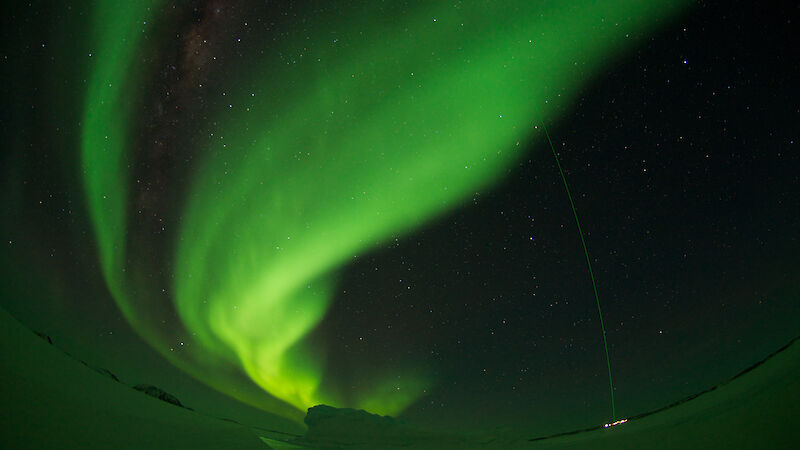The goal of the International Year of Light is to raise global awareness of how light and light-based technologies – such as lasers, UV and X-ray sources, and photonic electronics – promote sustainable development and provide solutions to global challenges in energy, education, agriculture, communications and health.
Speaking at the launch, National Science Foundation (NSF) Director France Córdova said light was vital to human activities.
“In nature, we see its impacts in photosynthesis and bioluminescence. We use it to glean information about our universe from the sun and stars. Scientists and engineers have harnessed the power of light on many spectrums to create applications that have revolutionised society through medicine, communications, entertainment and culture. Light and light-based technologies have launched countless industries and processes that have transformed our world and will continue to do so,” Mr Córdova said.
Scientists and expeditioners in Antarctica are reliant on light and light-based technologies. Just some examples include:
- the dramatic seasonal changes in day length that affect daily life on station
- the use of solar power to run VHF radio repeaters, remote radio installations, and automatic weather stations
- remote sensing technologies such as LIDAR (light detection and ranging) instruments to measure sea ice thickness, snow cover and atmospheric properties
- communication systems such as the internet, video conferencing and telemedicine, which connect Antarctic stations to the rest of the world.
In Australia, a range of activities will promote improved public and political understanding of the central role of light in the modern world while also celebrating noteworthy anniversaries – from the first studies of optics 1,000 years ago to discoveries in optical communications that power the Internet today.
Check out the upcoming events and how to be involved through the International Year of Light Australia 2015 website, and follow on Twitter @LightYearAu. Join the conversation and promote your activities to an international audience by using the tag #IYL2015.

